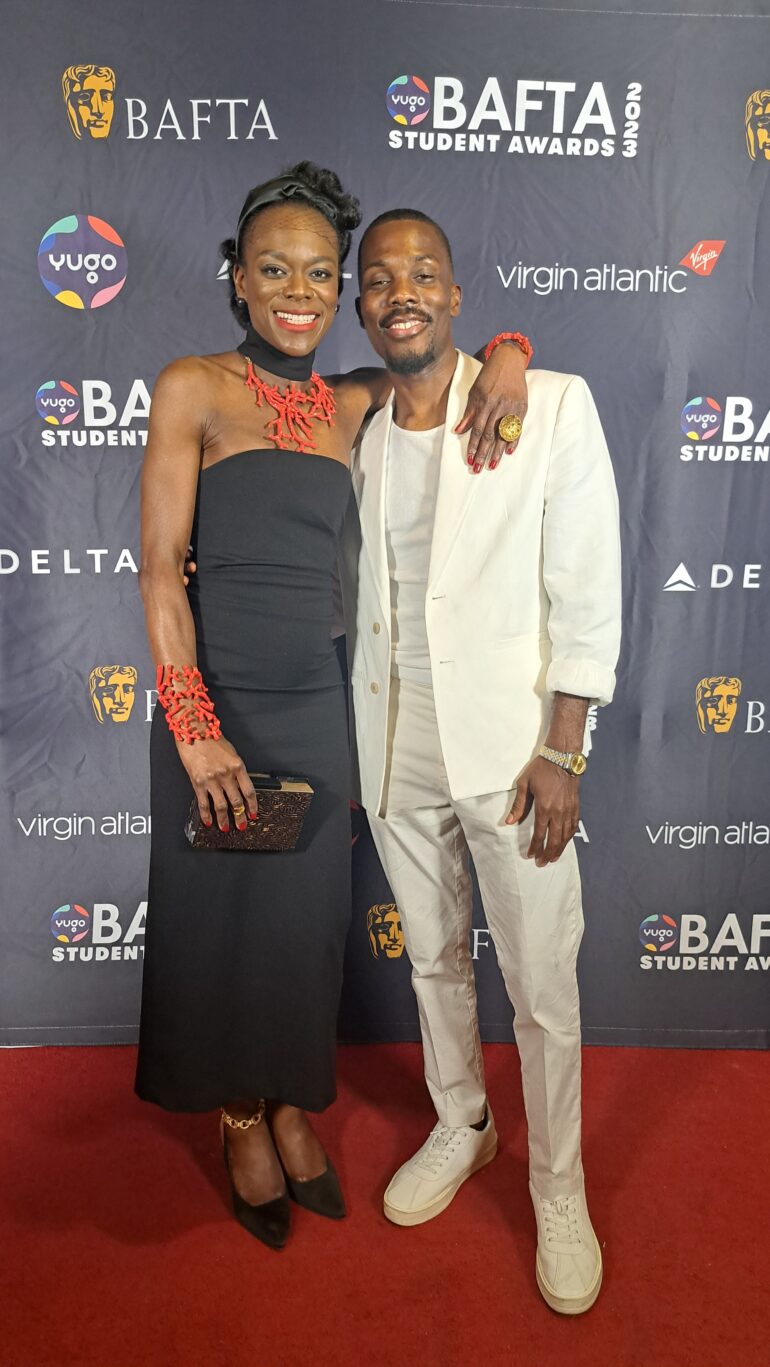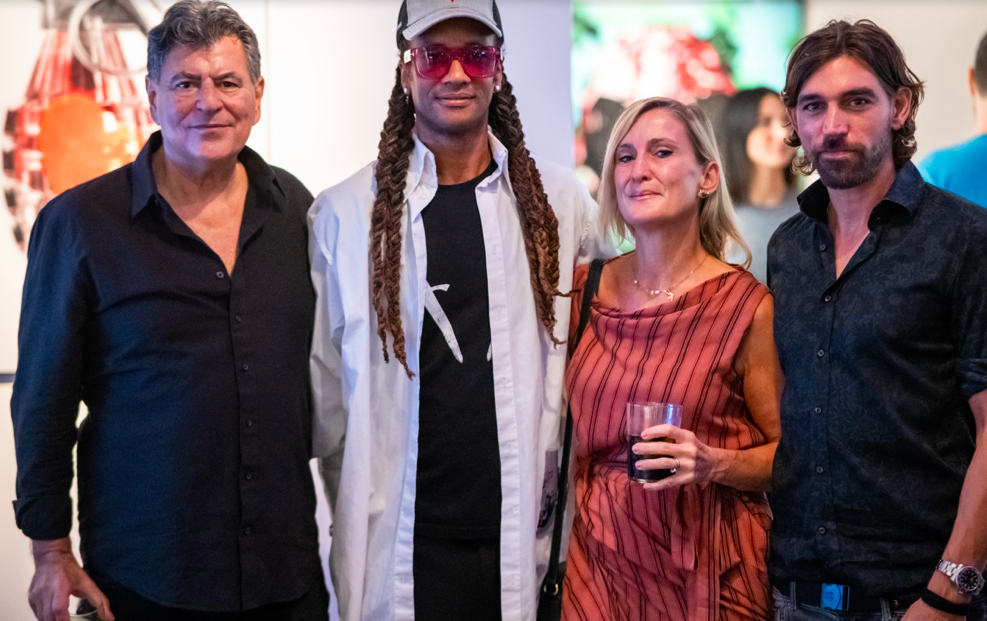‘I am more dangerous dead’ is a moving tribute to the enigmatic pipe-smoking writer, poet, human rights and environmental activist, Ken Saro-Wiwa. Saro-Wiwa dedicated his life to stopping the environmental damage inflicted in Ogoni, Nigeria through the exploitation of its oil resources. Saro-Wiwa was an inspirational leader to members of Nigeria’s Ogoni tribe, whose ancient tribal lands contained Nigeria’s most oil rich land.
Directed by Nigerian filmmaker, Majiye Uchibeke, short film ‘I Am More Dangerous Dead’ sheds light on the indelible legacy of Ken Saro-Wiwa and the continuing struggle for environmental justice in Nigeria and beyond.
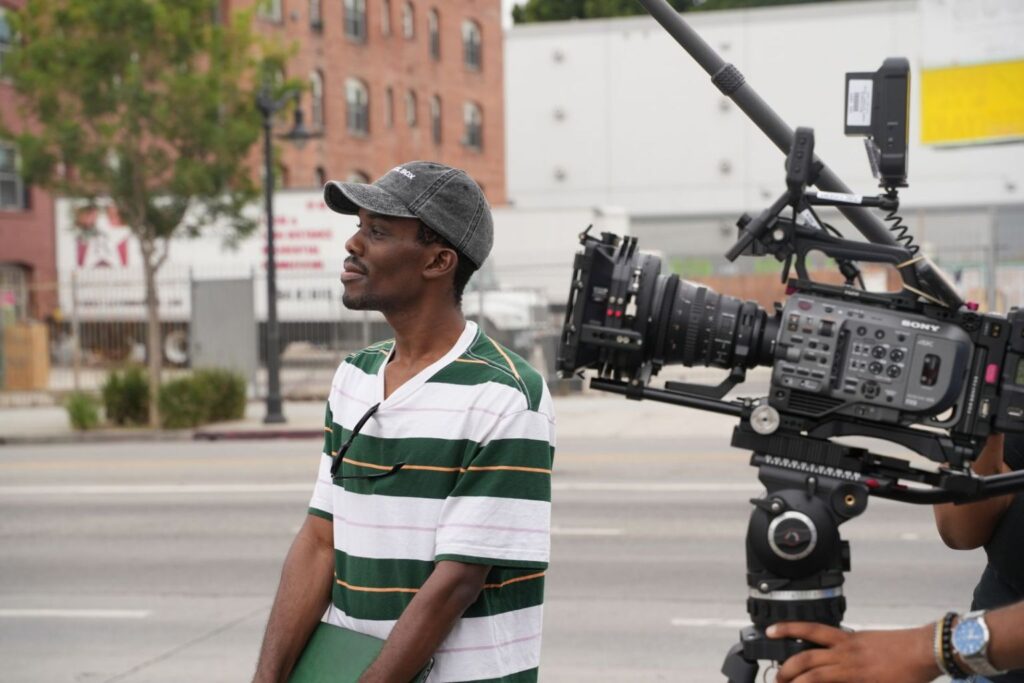
In 1956, oil was discovered in the Niger Delta region of Nigeria, and before long, multinational oil corporation Shell arrived in the region to exploit it. Oil spills damaged the ecosystem of the Ogoni, who were forced to live in close proximity to gas flares and dangerous levels of pollution.
Saro-Wiwa was the acclaimed creator of Nigerian TV show ‘Basi and Company’ which found him fame, and over 20 books including ‘On a darkling plain’, Adaku & other stories, ‘Soza Boy’ and ‘Genocide in Nigeria’. An accomplished author and poet, he added environmental activism to his repertoire when he decided to campaign publicly against the exploitation of the Ogoni people’s oil resources.
“Literature has to be combative. You cannot have art for art’s sake. This art must do something to transform the lives of a community…of a nation. And for that reason, literature has a different purpose altogether.” Ken Saro-Wiwa
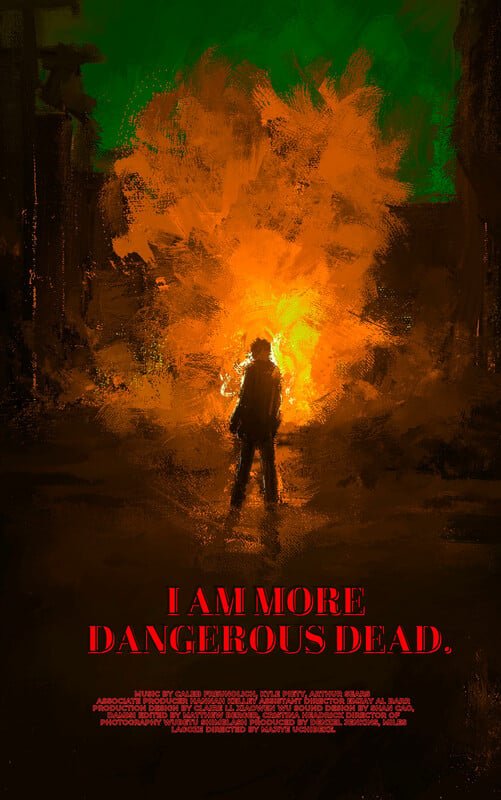
Through a combination of compelling interviews with those who knew Saro-Wiwa best, including family members and environmental activists, and the inclusion of his own poetic works, ‘I Am More Dangerous Dead’ poses the thought-provoking question, would you be willing to sacrifice your life for what you believe in? The film encourages audiences to reflect on the power of a committed individual to effect change in the world.
The film features archive interviews of Ken Saro-Wiwa, who accused the ethnic majority who run Nigeria, of practicing genocide against the Ogoni people, and accused Shell and Chevron of practicing racism against the Ogoni people.
“To deny a people the right to self-determination for well on a 100 years is to subject them to slavery. To take away the resources of people and refuse to give them anything in return, is to subject them to slavery.” Ken Saro-Wiwa
Saro-Wiwa’s son explains that ‘if you buy gas you’re buying a product that profits from other people’s pain’. That profit is eye-watering: it is revealed in the documentary that Shell made an astounding 404.4 billion US dollars in 2021.
Speaking out against the oil companies and government’s complicity in exploiting the Ogoni people and their oil-rich land, led to Saro-Wiwa’s arrest and execution alongside eight other activists for opposing the environmental damage done to their homeland.
After Saro-Wiwa and his fellow environmental activists were put on trial, even Nelson Mandela recommended the expulsion of Nigeria from the Commonwealth and the then-Prime Minister of Great Britain, Norman Major, called it an unjust trial. Saro-Wiwa was horrifically executed by the medieval method of hanging,
A newspaper clipping shown in the film describes Saro-Wiwa as ‘The gentle man who’s ideas they couldn’t kill,’ and Majiye Uchibeke’s skilful combination of archive footage and interviews cements his place in history as an eco-warrier, poet and peaceful activist who fought for civil rights and against government corruption and corporate environmental damage.
‘I am More Dangerous Dead’ has already won several awards at international film festivals, and has been selected for the 17th Lichtspieklub Short ‘British Shorts’ film festival from 18th-24th January in Berlin: https://www.britishshorts.de/indexEN
View a trailer of the film here:
Culturalee spoke to Associate Producer Winifred O. Adeyemi about the film.
Culturalee: How did you get involved with the film as an Associate Producer?
Winifred O. Adeyemi: I became involved in the film as an Associate Producer after Majiye Uchibeke and the USC student film crew had finished the production. There was an issue with copyright release that he and the university had been contending with for a while, and if it was not resolved legally the pivotal Ken Saro-Wiwa interview footage would have to be excised. This would have ruined the impact and narrative arc of the film. As Majiye despaired of clearing the copyright, he came upon my blog post and my connection to the copyright holder. He reached out to me and I was able to alleviate the contention and negotiate the release. I then came on board fully, supporting marketing, distribution, PR and creating a winning film festival strategy for the UK and EU market.
‘I Am More Dangerous Dead’ has already won several awards at international film festivals. What awards has it picked up and what impact do you think the film has had on raising awareness of Ken Saro-Wiwa’s life’s work and the plight of the Ogoni people?
Gosh, we have won so many laurels! Being selected for film festivals across five continents has meant as much as winning awards, as the message of the film and its engagement within the global climate action and environmental justice movements has been strong. To date, we have won numerous awards for ‘I Am More Dangerous Dead’. It is a short documentary made by students, and has done well in student film festivals and categories and as a short doc competing against seasoned filmmakers. To me, the most notable awards are the II Best Short Film at the IX International Nature and Environmental Protection Film Festival, Outstanding International (Short) at the Micheaux Film Festival, Best Documentary at the Offshore Film Festival, Grand Prize at March on Washington Film Festival and the Best Student Documentary at the Bristol Independent Film Festival.
‘I Am More Dangerous Dead’ also reached the Quarterfinals of the Student Academy (Oscar) Awards and the final three of the Yugo BAFTA Student Awards 2023. We are currently in consideration for a dozen other film festival awards in 2024.
As a filmmaker, Majiye has won a selection of high profile awards, marking him as a rising star and one to watch in the Hollywood firmament. These include the Collegiate Filmmaker Spotlight Award at the 15th Burbank International Film Festival, Directors Guild of America’s Best Documentary Student Filmmaker West Region.
I am very proud of Majiye, as the return on my investment in him as a person continues to bear fruit. He helped inaugurate the Essence Festival of Culture’s first Nigeria Day in New Orleans, Louisiana last summer and got to meet VP, Kamala Harris. The festival is a North American cultural institution attended by over 500,000 people.
In 2050, ¼ of the world will be African and youthful. Majiye’s success inspires those with filmmaking aspirations in Nigeria and across the continent and proves what is possible if governments invest in Arts education and develop creative industries that will guarantee employment as well as transmit culture and entertain citizens. Majiye is a leading light in African cinematography having trained at USC School of Cinematic Arts, the number one film program in the world according to The Hollywood Reporter and USA Today.
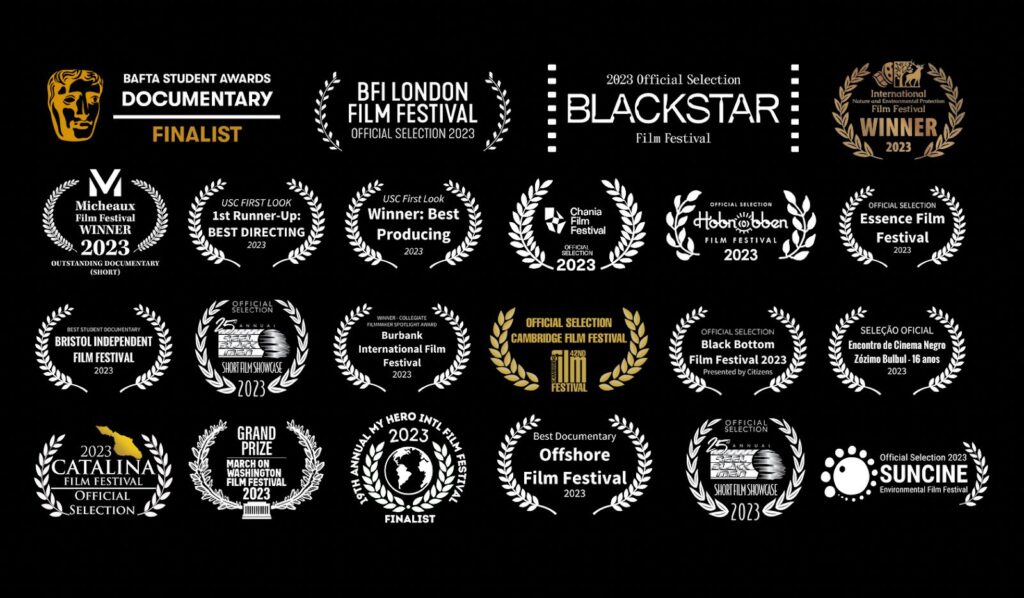
Saro-Wiwa was unique in the way he combined his work as a poet, writer and TV producer with environmental and civil rights activism. Why did director Majiye Uchibeke decide to tell his story, and did he meet any opposition from the Nigerian government or Shell when making the film?
Ken Saro-Wiwa has been an inspirational figure to me since his extrajudicial killing in 1995. In Nigeria, there are more men who would take a bribe than pay for what they believe in with their life. Majiye was born and raised in the Niger Delta, so the story of Big Oil’s devastating impact on his environment is a lived experience. He has grown up with the pollution that most of us only read about and witnessed its destruction on his community’s way of life first-hand.
As a filmmaker he saw it as a personal mission to tell this story. He also aimed to honour Ken Saro-Wiwa’s legacy, which is why I went hard to negotiate the copyright release: he is the heir to Ken Saro-Wiwa within the current generation of Nigerian directors, and ‘I Am More Dangerous Dead’ is a poetic tribute in synergy with Ken’s hallmark storytelling and ability to amplify the voices of the oppressed.
I am not aware of any direct opposition that Majiye has faced from the Nigerian government or Shell during the making of the film. He is based in Los Angeles, which gives him a safe position and global perspective.
Saro-Wiwa’s activism lives on, and the MOSOP (an organisation he founded during his lifetime) have launched a fundraiser for cleaning up the polluted environment in Ogoniland: https://chuffed.org/project/105214-mosop-environmental-restoration-of-ogoniland



